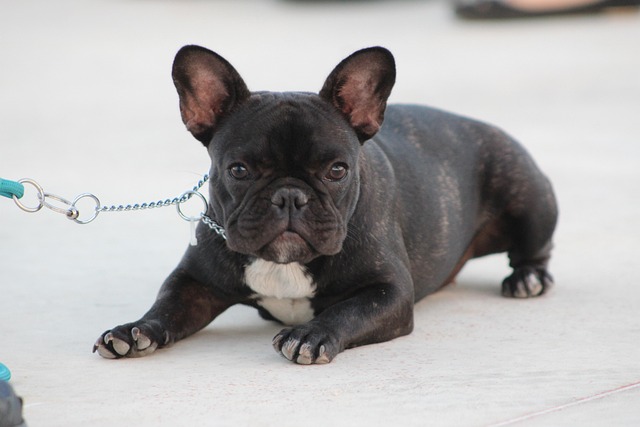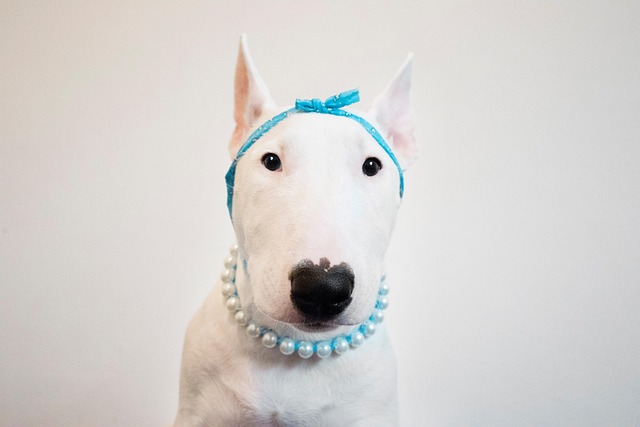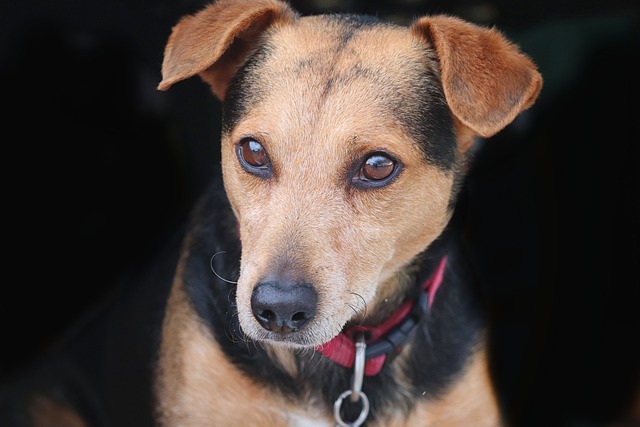
How do I know if my Poodle is cold?
As pet owners, we always hope to be able to feel the needs of our dogs at all times. When the Poodle at home is shivering, the worry is self-evident.
When we welcome an adorable puppy into our lives, our hearts are filled with anticipation for its future growth. Their innocent eyes and wobbly steps make us want to shower them with all the love in the world. However, during this loving journey, there are two crucial health protection measures that cannot be ignored, namely deworming and vaccination. This is not only related to the healthy growth of the puppy itself but also closely connected to the wonderful moments we spend with them.
After a puppy is born, it faces various potential health threats. Parasites are one of the major concerns. Parasites in the mother dog are likely to be passed on to the puppies through the placenta or milk. Just imagine those tiny parasites growing rampantly in the tender bodies of the puppies, stealing the nutrients they need for healthy growth. It's really heart-breaking. Therefore, deworming cannot be delayed. Generally speaking, puppies can have their first deworming when they are 2 to 3 weeks old. At this stage, the puppy's intestines are gradually adapting to the external environment, but they are also most vulnerable to parasite attacks. Through deworming, common parasites such as roundworms and hookworms that may exist in the puppy's body can be effectively eliminated, laying a solid foundation for their healthy growth. When we see the puppy no longer suffering from symptoms like diarrhea and weight loss due to parasites and regaining its lively and active nature, the owner's heart is filled with relief.
As the puppy grows older, when it reaches 3 to 4 weeks old, another critical time point arrives. At this time, the puppy's immune system starts to develop gradually, but it is still far from mature. They are like a group of little warriors without a strong shield, extremely vulnerable to external pathogens. And vaccines are the key to creating that strong shield for them. The first vaccination is usually carried out at this time. Common vaccines such as combined vaccines against canine distemper, parvovirus, infectious hepatitis, etc., can stimulate the puppy's immune system to produce antibodies, thus protecting them from these deadly diseases. When we take the puppy to the pet hospital for vaccination, we can't help but feel a little worried when we see the small needle piercing its body. But we know that this is to ensure that it can run and play healthily and happily in the days to come.
 After the first vaccination, it's not a one-time deal. The puppy's immune system needs to be stimulated multiple times to produce sufficient and long-lasting immunity. Therefore, subsequent booster vaccinations are required at regular intervals. Usually, a vaccination is needed every 3 to 4 weeks, and the process should be repeated 3 to 4 times. Each vaccination is like adding a brick to the puppy's health defense line. During this process, the owner needs to pay close attention to the puppy's physical condition. Sometimes, the puppy may experience some mild discomfort reactions after vaccination, such as loss of appetite and listlessness. These are normal phenomena, just like how we humans may also have some minor reactions after getting vaccinated. As long as we give the puppy enough love and care, they will quickly regain their vitality.
After the first vaccination, it's not a one-time deal. The puppy's immune system needs to be stimulated multiple times to produce sufficient and long-lasting immunity. Therefore, subsequent booster vaccinations are required at regular intervals. Usually, a vaccination is needed every 3 to 4 weeks, and the process should be repeated 3 to 4 times. Each vaccination is like adding a brick to the puppy's health defense line. During this process, the owner needs to pay close attention to the puppy's physical condition. Sometimes, the puppy may experience some mild discomfort reactions after vaccination, such as loss of appetite and listlessness. These are normal phenomena, just like how we humans may also have some minor reactions after getting vaccinated. As long as we give the puppy enough love and care, they will quickly regain their vitality.
Deworming is not something that only needs to be done once either. In the puppy stage, deworming should be carried out every 2 to 3 weeks. As the puppy grows older, when it reaches 3 to 6 months old, deworming can be done once a month. After 6 months old, adult dogs can be dewormed once every 3 months. This frequency setting has been verified by scientific research and practice and can maximally protect the puppy from parasite infestations. Every time we give the puppy deworming medicine, looking at their curious and innocent eyes, they may be a bit resistant because of the taste of the medicine. But we need to coax them patiently, because this small pill carries the hope of their health.
When the puppy has completed all the vaccination and deworming procedures, we still can't afford to be careless. It is very necessary to regularly take the puppy to the pet hospital for physical examinations, check for any internal parasite infections, and evaluate the immune effect of the vaccines. Because the living environment is complex and changeable, and the puppy may come into contact with new pathogens and parasites at any time. Only by remaining vigilant at all times can we ensure their health.
Puppies are the angels in our lives. They give us unconditional love and companionship. And we, as their guardians, have the responsibility to take care of their health. By deworming and vaccinating the puppy at the right time, we can enable them to thrive in an environment full of love and accompany us through many wonderful moments. Every time we stroke their soft fur and every time we see them wagging their tails happily, we are convinced that every effort we make for them is worthwhile. Let's use scientific methods to carefully care for these lovely little lives and fill their world with sunshine and health.

As pet owners, we always hope to be able to feel the needs of our dogs at all times. When the Poodle at home is shivering, the worry is self-evident.

When a dog has bronchitis, the violent coughs seem to be telling the owner about the discomfort. Seeing their shortness of breath and listlessness, the owner's heart is also in a knot.

When we find that dogs frequently scratch and bite their own skin, causing their originally smooth fur to become messy and even leaving scratch marks on the skin,

Watching the dog frequently assuming the defecation posture, its little face turning red from strain, yet being unable to defecate,

When a furry dog looks at you with wet eyes, but exudes an unpleasant smell and has tangled hair, many owners may hesitate: will not bathing really have a big impact?

When you find that your dog is getting thinner and thinner, has a poor appetite, or sees white wriggling worms in the feces, your inner worry and heartache will surge instantly.